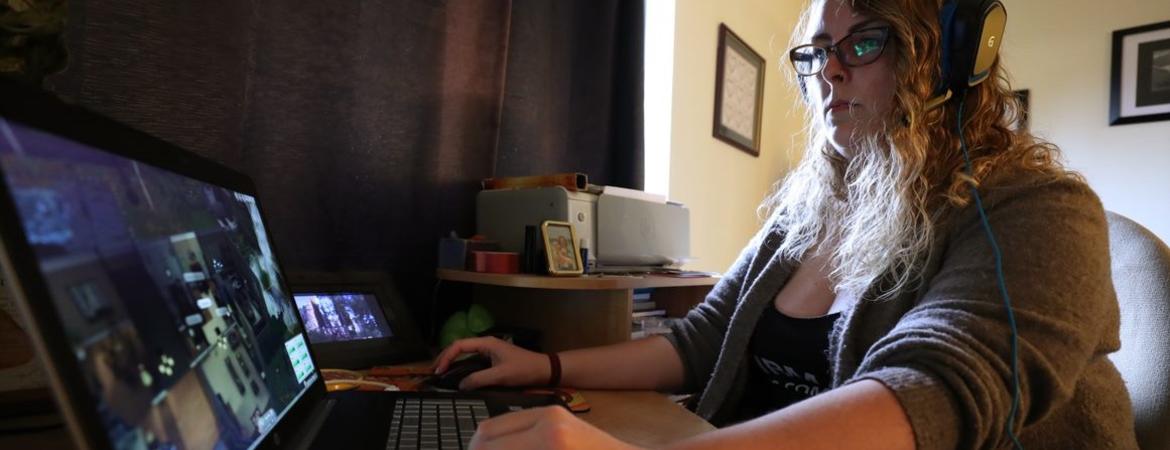
Courtney Baugh is planning her vegetable garden. Green beans, beets, definitely cucumbers. And she’d like to plant an orange tree, and an apple tree — the kind that yield fruit the moment they’re planted.
She’s also going to install an 8-foot privacy fence in her back yard, to keep out the robbers.
Robbers are a serious problem in the world of SIMS, where gamers like Baugh act as god/chief architect/life choreographer to their virtual subjects.
But a concern that’s far more real-world than robbers is trolls —the online trolls with which women gamers must contend. Chatting online and streaming, women are told they’re not good enough; they are “ghosted” – ignored – by their male counterparts; they are subjected to sexual innuendo and propositions.
It’s severe enough that Baugh said many women cloak their identities when online.
“Most women don’t use a mic,” she said, referring to the microphone on gamers’ headsets. “Once other gamers know you’re a woman, they treat you differently.”
As much as half of the online gaming community is women. Yet a recent study showed that 70 percent of female gamers reported inhabiting male avatars to avoid harassment.
In 2014, a scandal called “Gamergate” erupted, in which male gamers targeted women throughout the industry. The phenomenon of mistreatment has even been given a name: cybermisogyny.
The anonymous nature of gaming and “e-sports” creates an incubator for this brand of behavior, Baugh said.
“The screen makes you feel like it’s not a real person. It’s like getting cut off in traffic; it’s like you’re not interacting with a human being – you’re interacting with a car,” said Baugh, 31, a third-year psychology graduate student in the lab of Rebekah Reichert.
Baugh’s research involves studying whether children translate a character’s success into his or her own success. She also looks, more broadly, at whether the media teaches positive social behavior. For the most part, it doesn’t.
“My research isn’t 'is media bad or good' – my research is 'media is there',” Baugh said.
For Baugh, an ideal night is assuming her online persona/screen name, “MagicalMe,” and settling down before her dual monitors at her Canyon Crest apartment in her most comfortable pajamas. Her current fixation: Streaming “Dead By Daylight.” She doesn’t play; she watches. “It’s too intense for me,” she said of the game.
The last time Baugh streamed in “public view,” two cyberbullies made sexually suggestive and abusive comments, in the presence of online friends. She vowed she wouldn’t stream in an uncontrolled public forum again.
She morphed that disgust into motivation, and – with a couple gaming friends –formed a gaming community called “Infirmary Gaming Community.” For women and others, it’s a haven from sexism and racism.
Infirmary is a free discussion forum in which one can promote one’s own stream, seek out a buddy with whom to play Fortnite, Sea of Thieves, etc., or find other gamers who live in one’s zip code. Baugh’s role is that of HR referee, vetting new prospective mentors, policing the discussions forums.
Infirmary has grown to almost 800 members, and Baugh hopes to add more women to the current 60-40 man-woman ratio. She uses Infirmary for streaming marathons toward good causes, such as suicide prevention.
“There is a lot of good that comes with gaming, but – like with most things – there is also the potential for bad,” Baugh said.
Infirmary, she said, is her answer for keeping the bad in check.
To find Baugh’s online community, search “Infirmary Gaming Community” on the chat channel Discord, or with an Internet browser such as Google.



